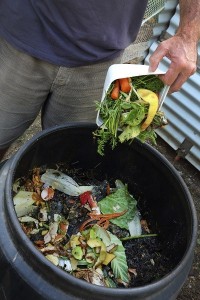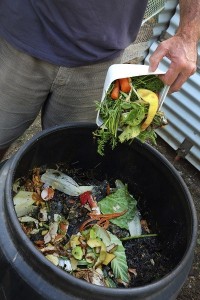 If you have a backyard garden, be sure to give it plenty of sunshine, water, and garbage.
If you have a backyard garden, be sure to give it plenty of sunshine, water, and garbage.
Wait… garbage? Yes, you read that right.
Garbage like rotting food and coffee grounds, made into compost, can be highly beneficial to garden plants. Why? It all has to do with nitrogen.
Plants need nitrogen in order to survive. There is plenty of nitrogen in the atmosphere; the problem is that plants can’t use it in the form found in the atmosphere. For this, bacteria are needed. Bacteria “fix” nitrogen, meaning that they change it into a usable form.
Please login or register to read the rest of this content.
Keep your compost heap moist, but not soggy and turn it with a pitchfork or spade to add air into the mix. Once your compost bin is going strong, you can add it to your garden for improved plant growth!


Yes I have seen those articles also! Citrus peels will not hurt the worms, but some worms will not eat citrus peels until they have partially decomposed, so you can speed up this process by chopping the peels into small bits before adding it in.
We read that citrus may be harmful to the worms in the compost bin. What are your thoughts on this?
You’ve found one of the very few experiments that I have not yet created a video for! If you have specific questions about something in this experiment, let me know so I can help you out!
their are no instructions o how to do the experiment
This is one of the very few experiments that didn’t have a video. Sorry about that!
ware is the video?